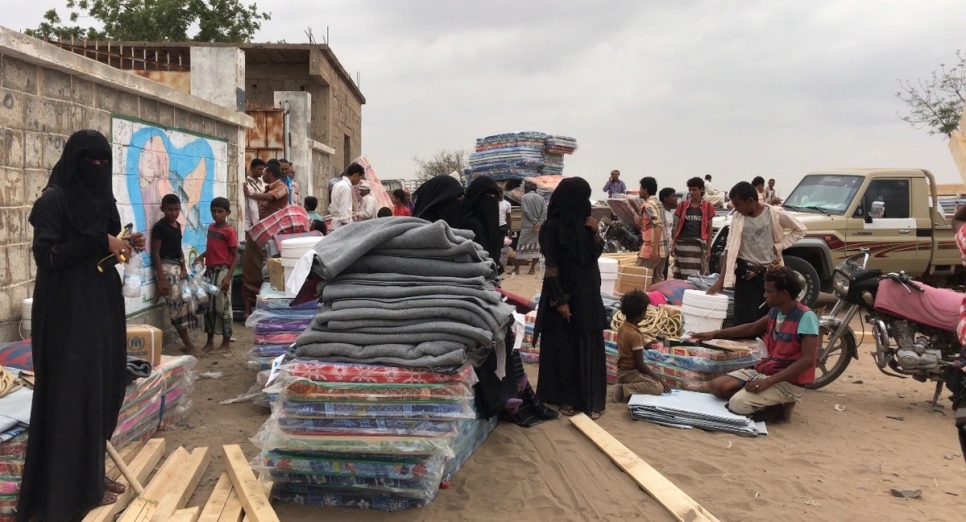New York- The United Nations refugee agency has called for international support after tens of thousands of people in Yemen were forced to flee their homes in the past six weeks.
“More than 62,000 have been reported to be displaced within the last six weeks,” UNHCR spokesperson William Spindler said Friday.
On Yemen’s western coast, recent fighting in Taiz governorate has left more than 48,400 people displaced. The majority have fled within Taiz or to neighboring Hudaydah, he said.
“Most of those displaced are in dire need of assistance and have found shelter in communal and public spaces, including schools and health facilities, whilst others are living in unfinished buildings or even out in the open,” the UNHCR spokesperson said in his press briefing.
“A number of those displaced, including many children, have been reported as suffering from malnutrition, while others are distressed and in need of psycho-social assistance. Overcrowding and unsanitary conditions in areas of displacement are also leading to outbreaks of diseases, including skin ailments,” he added.
Spindler stated that the UNHCR together with partners, has quickly responded to the needs of the newly-displaced people from Taiz, including through the provision of shelter and relief items for those that arriving in districts of Hudaydah and Ibb.
The UN refugee agency continues to advocate intensely for access within Taiz itself to reach people in need. UNHCR participated in a joint mission late last month to the governorate’s district of Mokha, which found that many of the displaced were living in appalling conditions, sheltering in public schools, health facilities. Both displaced and host community families are struggling with a lack of basic assistance and have fears of violence.
Meanwhile, the World Health Organization said that more than 600 patients who have kidney failure are struggling as Yemen’s health crisis worsens.
In recent months, with internally displaced people flooding into Hudaydah, the number of patients receiving haemodialysis treatment in the Renal Dialysis Centre has risen to over 600, despite the fact that the center’s capacity is 400.
According to the WHO, the center is facing several logistics difficulties, including power cuts.
The budget allocated to health authorities has also been drastically reduced, leaving health facilities without funds for operational costs and health care workers without regular salaries since September.
